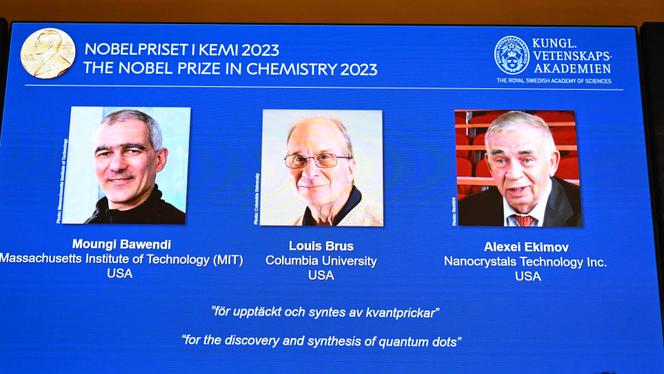


Three scientists won the Nobel Prize in chemistry on Wednesday, October 4, for their work on tiny quantum dots. Moungi Bawendi, of MIT, Louis Brus, of Columbia University, and Alexei Ekimov, of Nanocrystals Technology Inc., were honored for their work with the tiny particles that are just a few atoms in diameter and whose electrons have constrained movement. This affects how they absorb and release visible light, allowing for very bright colors. They are used in many electronics, like LED displays.
"These tiny particles have unique properties and now spread their light from television screens and LED lamps. They catalyze chemical reactions and their clear light can illuminate tumor tissue for a surgeon," according to the Royal Swedish Academy of Sciences, which announced the award in Stockholm.
In a highly unusual turn of events, Swedish media reported the names of the winners before the prize was announced. The academy did not comment on the leaked names before the announcement.
The Royal Swedish Academy of Sciences, which awards the physics, chemistry and economics prizes, asks for nominations a year in advance from thousands of university professors and other scholars around the world.
A committee for each prize then discusses candidates in a series of meetings throughout the year. At the end of the process, the committee presents one or more proposals to the full academy for a vote. The deliberations, including the names of nominees other than the winners, are kept confidential for 50 years.
Last year, Americans Carolyn R. Bertozzi and K. Barry Sharpless, and Danish scientist Morten Meldal were jointly awarded the Nobel Prize in chemistry for developing a way of " snapping molecules together" that can be used to explore cells, map DNA and design drugs that can target diseases such as cancer more precisely.
The Nobel Foundation raised the prize money by 10% this year to 11 million kronor (about $1 million). In addition to the money, winners receive an 18-carat gold medal and diploma when they collect their Nobel Prizes at the award ceremonies in December.
